Activity theory
-
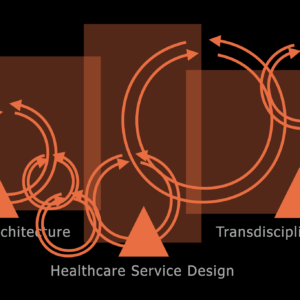
The life cycle of a design research object
Abstract: What is design research? How does it differ from design activity? Consider this distinction regarding the activity’s object. Design activity may be an object of design research in research about design. Yet, in research through design, the research object is shared with another activity, for example, another science. Drawing from personal experiences in hospital […] - Nov 4, 2024 -
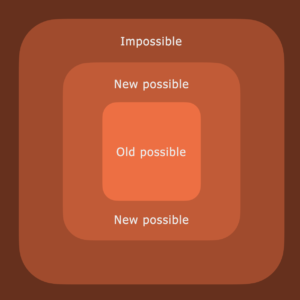
Designing between the possible and the impossible
Abstract: The possible is relatively constituted to what is meant to be impossible. Whenever someone does something formerly known to be impossible, the possible expands, and a new frontier appears. Expanding this box is not trivial, though. Contradictions binding the dos and don’ts demotivate any naïve attempt to design at the border. Expansive design is […] - Oct 21, 2023 -
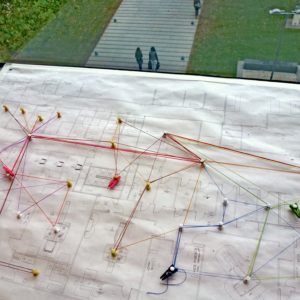
The role of games in developing transformative agency
Van Amstel, Frederick M.C. (2021). The role of games in developing transformative agency. Brazilian Journal of Socio-Historical-Cultural Research and Activity, 3(2). https://fredvanamstel.com/journal/the-role-of-games-in-developing-transformative-agency - Dec 31, 2021 -
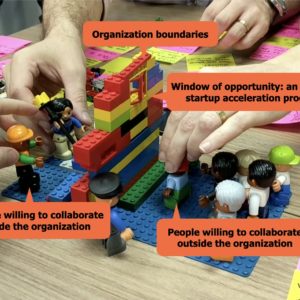 Germ cell model is a representation of a contradiction that is at the forefront of activity development. It features the dialectical reason why development is not advancing further as expected, and a possible path to overcome the barriers. Models are rather ambivalent in the way they represent contradictions, since they may not solve the contradiction. There […] - Jan 27, 2021
Germ cell model is a representation of a contradiction that is at the forefront of activity development. It features the dialectical reason why development is not advancing further as expected, and a possible path to overcome the barriers. Models are rather ambivalent in the way they represent contradictions, since they may not solve the contradiction. There […] - Jan 27, 2021 -
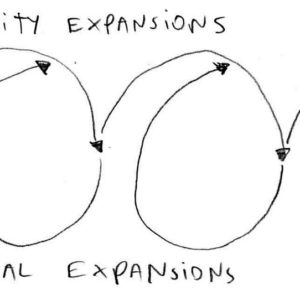 Formative Intervention is a method for studying concept formation inside organizations in moments of turmoil, confusion, or stagnation (Engeström, 2011). The interventionist researcher identifies the contradictions hindering organization development and presents them for discussion with the research participants. Typically, the researcher brings theoretical concepts from Cultural Historical Activity Theory (CHAT) to explain and analyze these […] - Jan 27, 2021
Formative Intervention is a method for studying concept formation inside organizations in moments of turmoil, confusion, or stagnation (Engeström, 2011). The interventionist researcher identifies the contradictions hindering organization development and presents them for discussion with the research participants. Typically, the researcher brings theoretical concepts from Cultural Historical Activity Theory (CHAT) to explain and analyze these […] - Jan 27, 2021 -
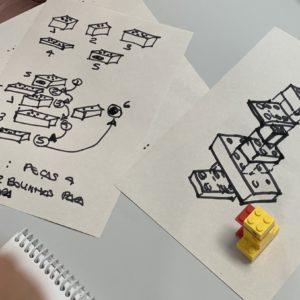
Design and other types of thinking
Design and other types of thinking (2020) was a workshop offered in UTFPR teaching seminars. Design thinking is a contemporary approach to innovation, entrepreneurship, project development, and education that makes designers’ thinking accessible to professionals in other areas. While it has drawn attention to creative processes typical of design, this approach has overshadowed the thoughts […] - Apr 27, 2020 -
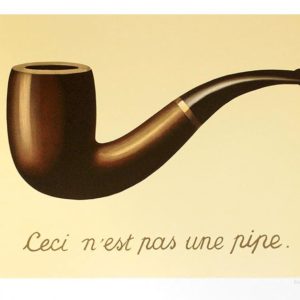
What is a contradiction and why it is relevant to design research?
Design research is increasingly concerned with being part of change processes in everyday life, in communities, in organizations, and in large-scale sociotechnical systems. Despite the growing interest, the field is not prepared to deal with this topic. The predominant theories in design research were crafted to understand individuals interacting with products, or groups of people […] - Apr 21, 2020 -
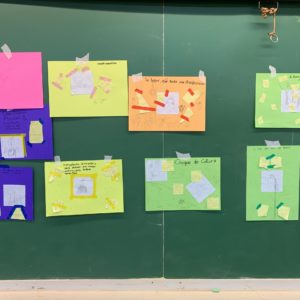 30 hours – Graphic Design — UTFPR Creativity is not a personal trait of a genius but a social activity that can be perfected through practice. The basic premise of this course was featured in a news item on TV Paraná Turismo. The TV news report conveys that creativity is not an innate talent reserved for […] - Mar 28, 2020
30 hours – Graphic Design — UTFPR Creativity is not a personal trait of a genius but a social activity that can be perfected through practice. The basic premise of this course was featured in a news item on TV Paraná Turismo. The TV news report conveys that creativity is not an innate talent reserved for […] - Mar 28, 2020 -
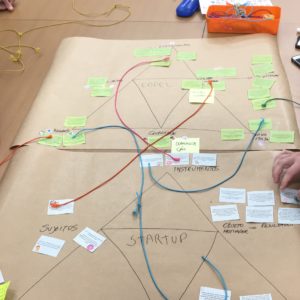 Change Laboratory is a method developed by CRADLE to help organizations change routines, deal with conflicts, and create new ideas through a participatory approach. The method consists of three different moments: 1) presenting contradictions found through ethnographic research in the organization; 2) analyzing the systemic nature of these contradictions through organizational models; 3) generating new […] - Nov 1, 2018
Change Laboratory is a method developed by CRADLE to help organizations change routines, deal with conflicts, and create new ideas through a participatory approach. The method consists of three different moments: 1) presenting contradictions found through ethnographic research in the organization; 2) analyzing the systemic nature of these contradictions through organizational models; 3) generating new […] - Nov 1, 2018 -
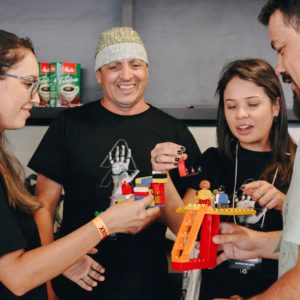 I’m developing further the Lego Serious Play method to support Expansive Design, in particular, to represent tough contradictions in a humorous style. This is useful when people avoid talking about contradictions openly or deny their existence. The pretext of play enables critical voices and radical alternatives to emerge. References Van Amstel, Frederick M.C. (2021). The […] - Oct 31, 2018
I’m developing further the Lego Serious Play method to support Expansive Design, in particular, to represent tough contradictions in a humorous style. This is useful when people avoid talking about contradictions openly or deny their existence. The pretext of play enables critical voices and radical alternatives to emerge. References Van Amstel, Frederick M.C. (2021). The […] - Oct 31, 2018 -
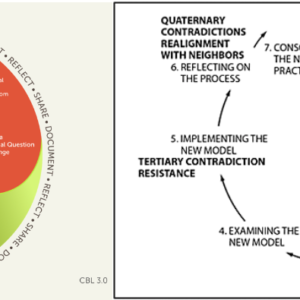
Expansive Design and Learning in a Software Studio
Unfinished post-doctoral research project at Post-Graduate Program in Informatics at PUCPR. Software studio is a pedagogical approach for learning while doing it in practice Interaction Design (CULÉN et al, 2014; BINDER et al, 2009; REIMER, 2003) as well as Software Engineering (HAZZAN, 2002; KUHN, 1998; TOMAYKO, 1996; TOMAYKO, 1991). Inspired by the way architects learn […] - Oct 31, 2018 -
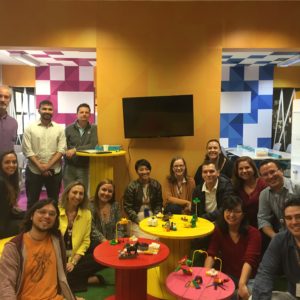
Organizational Learning in Open Innovation Ecossystems
Open Innovation inspires big companies to participate in entrepreneurial ecosystems, in the hope of promoting valuable organizational learning. Individual employees can learn together with individual entrepreneurs who are struggling to find a working business model, however, this learning might not be absorbed by the company. One of the reasons for that is the lack of […] - Oct 30, 2018 -

Design ethnography with activity theory
Design ethnography is a field study method that aims at uncovering user needs and innovation opportunities. Through this method, anthropologists can help understand the context, bringing up semantic, emotional, and social issues that may represent innovation opportunities. However, most design ethnographies are not carried out by trained anthropologists. Design ethnography is typically conducted by designers themselves, […] - Oct 28, 2016 -
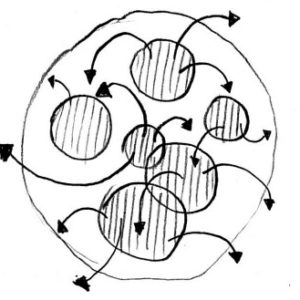 In the first lecture of my Design Thinking course, I gave a historical perspective on the evolution of the design object. According to my thesis work, the object of design expanded in the last century from complex entities to emergent performances, such as experiences, interactions and business. The characteristics of this object are: It includes the user behavior, as […] - Sep 16, 2016
In the first lecture of my Design Thinking course, I gave a historical perspective on the evolution of the design object. According to my thesis work, the object of design expanded in the last century from complex entities to emergent performances, such as experiences, interactions and business. The characteristics of this object are: It includes the user behavior, as […] - Sep 16, 2016 -
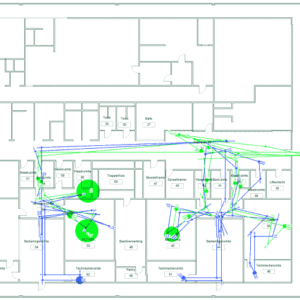
The social production of design space
Van Amstel, F.M.C; Hartmann, T; Voort, M. van der and Dewulf, G.P.M.R. The social production of design space, Design Studies, 46, 2016, p. 199–225. DOI: https://doi.org/10.1016/j.destud.2016.06.002 - May 2, 2016 -
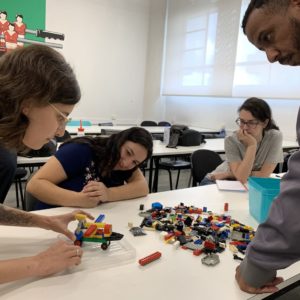 Educational Game Design is a 45 hours graduate course from the Design program of Federal University of Paraná (UFPR). The course was delivered in collaboration with prof. Andre Battaiola. The syllabus includes readings on Game Design and Cultural Historical Activity Theory. The initial classes reproduced some experiments with entertainment and educational games. The Silent Game […] - Apr 28, 2016
Educational Game Design is a 45 hours graduate course from the Design program of Federal University of Paraná (UFPR). The course was delivered in collaboration with prof. Andre Battaiola. The syllabus includes readings on Game Design and Cultural Historical Activity Theory. The initial classes reproduced some experiments with entertainment and educational games. The Silent Game […] - Apr 28, 2016 -
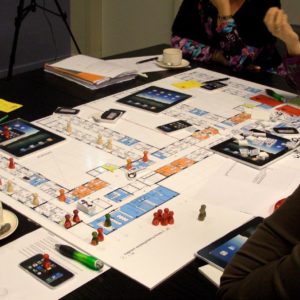
The Transformative Potential of Game Spatiality in Service Design
Van Amstel, Frederick M.C. and Garde, Julia. Games to explore the possibilities of space and the space of possibilities in service design. Simulation & Gaming, 47 (5), 2016, p. 628-650. https://doi.org/10.1177/1046878116635921 - Mar 4, 2016 -
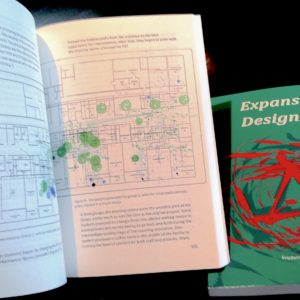
PhD thesis – Expansive design: designing with contradictions
A quick guide to this thesis: Abstract: This thesis looks at the practice of design as it emerges in architectural design and service design. The lens adopted considers design both as an activity as well as a space full of contradictions, which are accumulated tensions. Design activity is a professional occupation that interacts with other […] - Dec 14, 2015 -
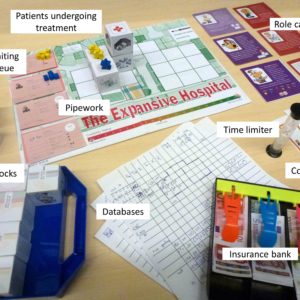
Expensive or expansive? Learning the value of boundary crossing in design projects
Amstel, F. M.C. van; Zerjav, V; Hartmann, T; Dewulf, G.P.M.R; Voort, M.C. van der. 2016. Expensive or expansive? Learning the value of boundary crossing in design projects. Engineering Project Organization Journal, 6 (1), Pages 15-29. DOI: https://doi.org/10.1080/21573727.2015.1117974 - Nov 18, 2015 -
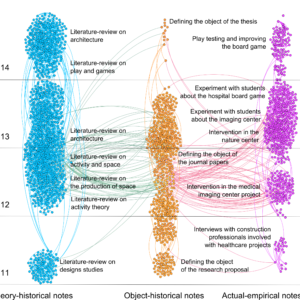
Regressive-progressive historical analysis
The Expansive Design thesis was crafted on the historical analysis methods used in Cultural Historical Activity Theory (Engeström) and Production of Space Theory (Lefebvre). This page explains in detail how data was collected and analyzed. The open data is publicly available for browsing. Historical analysis in the production of space is called regressive-progressive (Lefebvre, 1991; […] - Aug 11, 2015 -
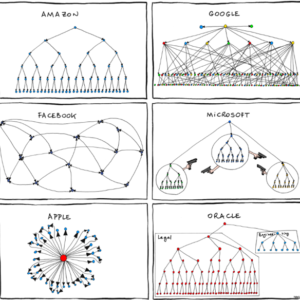
The collaboration for use value
The basic assumption of capitalism that companies make money from valuable products is being challenged by recent market changes. Products are no longer considered valuable only for sales’ performance. They must perform well after the sales, i.e. in use, otherwise sales may drop. The use value (a.k.a. value in use) corresponds to the product applications found […] - Jun 10, 2015 -
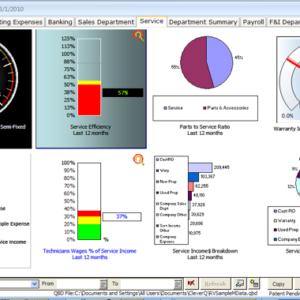
The competition for exchange value
Value is an expected outcome or the effective outcome of using an object. If the object is useful, the value should be higher, however, that is not the case in a capitalist economy. If many people possess the object and are willing to exchange it, the value is lower, no matter how useful the object […] - May 5, 2015 -

Double stimulation experiments
For my PhD research, I had to do some experiments in design education. Design education is characterized by a learning-by-doing approach when the learner is pushed to take the lead of experimentation. This represents a problem for design educators who also want to test the research hypothesis within teaching activities since it is not easy […] - Dec 20, 2014 -
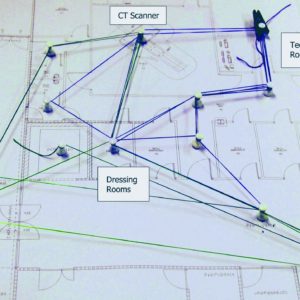
Expanding the representation of user activities
Van Amstel, F. M.C., Zerjav, V., Hartmann, T., van der Voort, M. C., & Dewulf, G. P. (2015). Expanding the representation of user activities. Building Research & Information, 43(2), 1-16. DOI: https://doi.org/10.1080/09613218.2014.932621 - Jul 15, 2014 -
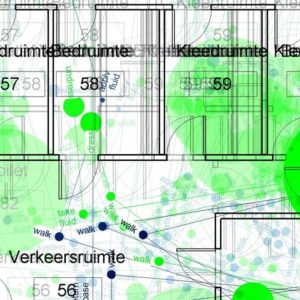
Contradictions in the design space
van Amstel, F., Zerjav, V., Hartmann, T., van der Voort, M., and Dewulf, G. (2014) Contradictions in the design space, in Lim, Y., Niedderer, K., Redström, J., Stolterman, E. and Valtonen, A. (eds.), Design’s Big Debates – DRS International Conference 2014, 16-19 June, Umeå, Sweden. https://dl.designresearchsociety.org/drs-conference-papers/drs2014/researchpapers/99 - Feb 17, 2014 -
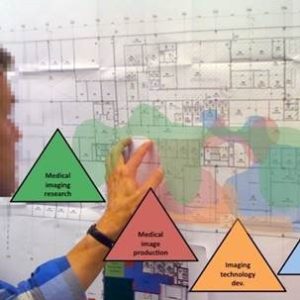
Grounding the flying triangle: activity theory and the production of space
Amstel, F.M.C. van; Hartmann, T; Voort, M. van der; Dewulf, G.P.M.R. (2014) Grounding the flying triangle: activity theory and the production of space. In: Proceedings of the European Group for Organizational Studies Colloquium, Rotterdam. - Feb 14, 2014 -
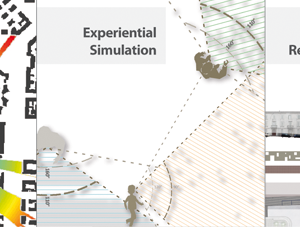
The validity of user’s activity representation
Last week I attended a conference in Milan about visualizations in Architecture. The conference showcased many objective ways to represent the user perception of space before it is built: maps, simulations, calculations, scatterplots, etc. The represented perceptions ranged from confort to privacy. My own presentation raised the issue of validity of such representations, considering the […] - Oct 7, 2013 -
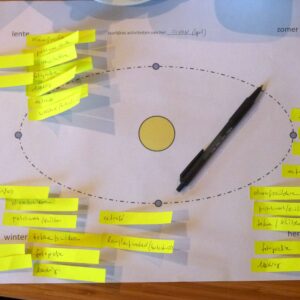 Grounding Activities is a participatory design game developed as part of a nature center project to help stakeholders speculate their future activities over a proposed architectural space. The game follows a structured process in three phases, guiding participants to explore their activities’ temporal and spatial dimensions and assess how well a proposed design meets their […] - Sep 10, 2013
Grounding Activities is a participatory design game developed as part of a nature center project to help stakeholders speculate their future activities over a proposed architectural space. The game follows a structured process in three phases, guiding participants to explore their activities’ temporal and spatial dimensions and assess how well a proposed design meets their […] - Sep 10, 2013 -
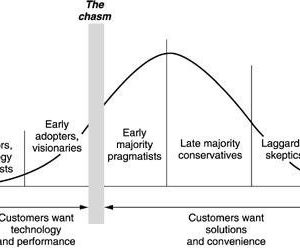
Technology Appropriation Scale
During my Masters I stumbled upon the paper [PDF] from the Abaporu Project, a project that studied mobile technology in Brazil. Instead of a traditional adoption study based on the chart above, the authors decided to go from the other way around. They didn’t tried to track to what extent a specific (foreign) technology was […] - Jun 27, 2012 -
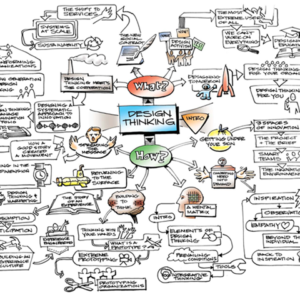
Using Activity Theory to situate Design Thinking
During my last trip to Brazil, together with Andre Malheiro, I conducted a Design Thinking workshop at Rede Globo, the producer of the famous Brazilian soap operas. I’ve been experimenting using Activity Theory as a framework for Design Thinking in these kind of workshops for a while, but after this, I got an important insight: […] - Oct 31, 2011